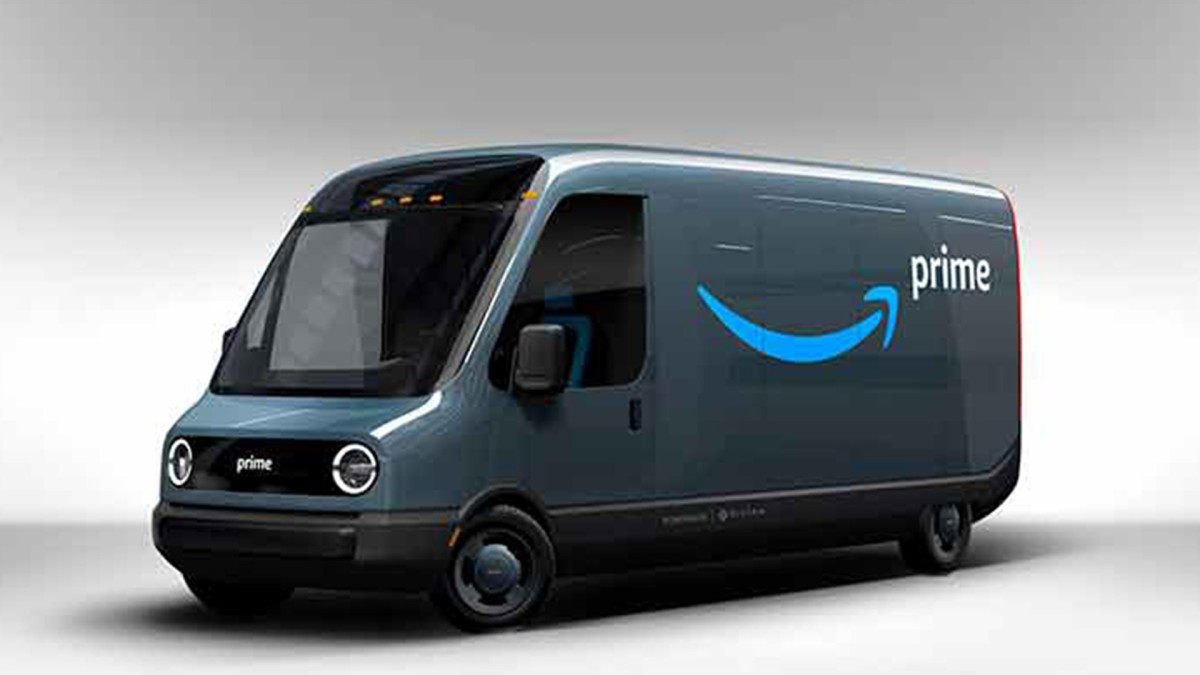
Well, somebody has to deliver all that stuff.
Amazon (AMZN) -) said that its recent Prime Big Deal Days was the e-commerce giant's largest October holiday kick-off event ever.
DON'T MISS: Tesla earnings on deck with margin pressure, FSD licensing, Cybertruck in focus
U.S. Prime members bought more than 25 million items with same-day or next-day delivery, the company said, with hundreds of thousands of items delivered within four hours of purchase.
Deliveries means vans and that's where Rivian (RIVN) -) comes in.
Amazon, which owns a stake of the electric vehicle maker, said on Oct. 17 that it had doubled its fleet of custom-designed Rivian electric delivery vehicles to a total of 10,000 vehicles.
Amazon has partnered with Rivian to have at least 100,000 electric delivery vans on the road 2030, as part of its broader climate pledge to reach net-zero carbon emissions by 2040.
The company has completed 260 million deliveries in 1,800 U.S. cities with Rivian vans.
Vans part of 'last-mile delivery'
The vans are part of Amazon’s “last-mile delivery” or the final leg of a package’s journey to a customer’s doorstep.
Amazon is also working with Volvo Trucks to bring 20 heavy-duty electric models to the company in Germany, to replace its fleet of diesel trucks.
The announcement was an injection of sorely needed positive news for the troubled EV maker.
Rivian stock took a hit earlier this month after the company unveiled plans to offer a convertible bond that offset a solid revenue forecast.
The company had delivered 15,564 vehicles in the three months ending in September, beating Wall Street expectations and more than doubling the 6,500 cars the electric vehicle startup delivered last year.
Rivian had said it had enough money to last it through 2025 following a $1.3-billion capital raise in March.
But then the company said it would issue $1.5 billion, sparking concerns among investors and some suppliers about the company's financial health.
Wedbush analyst Dan Ives said the move was a big misstep for the EV startup, saying in a note to clients that “the Street’s low confidence in this management team around investor messaging and execution is a major problem for the stock and remains a huge overhang.”
CEO RJ Scaringe told Reuters the new capital raise was meant to create an additional buffer as it was kicking off meaningful investments to build its smaller R2 vehicle family.
Tough times for EVs
The issue would also make sure "that we are never at risk of having a overly constrained or overly tight balance sheet," Scaringe said.
“We don't control the macro economic environment, we cannot control political conflict, and those are real risks that exist not just specific to Rivian,” he said. “That's a risk to our capital markets and the liquidity of those capital markets.”
Shares of Rivian and other automakers were sliding on Oct. 18 amid concerns about waning enthusiasm for EVs.
General Motors (GM) -) announced that it would pause production on its Chevrolet Silverado EV and GMC Sierra EV truck brands.
GM said it will “re-time” the $4 billion conversion of its Michigan-based Orion Assembly plant, putting a stop to the automaker's plan to repurpose the plant for EV truck manufacturing.
The Orion Assembly plant was supposed to be converted to EV truck production in 2024. Now GM says it’s pushing that date back to 2025 in an effort to “better manage capital investments” and boost truck building improvements that would attract more buyers.
In addition, Ford (F) -) is laying off about 700 workers who build the F-150 Lightning, the electric version of its best-selling pickup truck. Sales of the Lightning fell 45% in the third quarter compared with a year earlier.
The company said overall demand for its electric vehicle lineup remains strong with a 65% increase in the third quarter.
Action Alerts PLUS offers expert portfolio guidance to help you make informed investing decisions. Sign up now.


.jpg?w=600)




